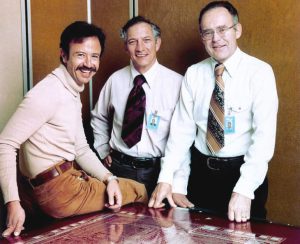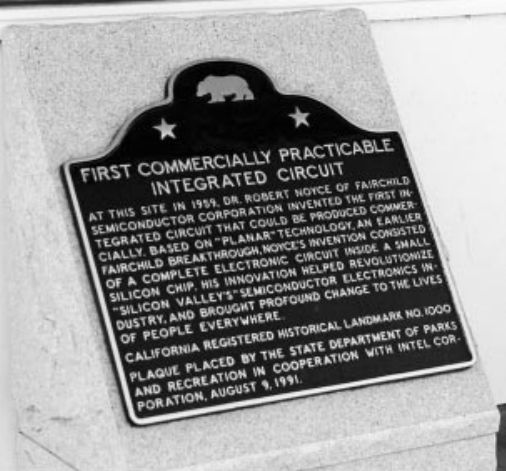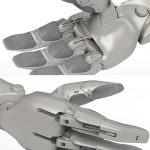Dr Gordon Moore, one of the three co-founders of Intel Corporation has passed away in Hawaii at the age of 94. I had the privilege of interviewing him in London in March 1997, and he came across as a genuinely humble man, typical of the genuine ‘boffin’ type of the time.
The thing I remember mostly from the interview was his professed love for antiques. Apparently he and his wife, Betty, spent a lot of their free time browsing for antiques. Which seemed rather ironic for a man who was so pivotal in creating our future. I’ve posted my original interview below.
He was mostly famous for Moore’s Law, but in my eyes, he and his colleagues were responsible for the technological revolution that we still enjoy to this day, thanks to the miniature integrated circuit or IC. Without the pioneering work done by Intel, based on earlier work from Bell and Shockley labs and Fairchild, none of our modern tech would exist.
The only other thing I remember about the interview, was my horror when my then editor at The Times decided to run the piece under a title which contained the term Mr Chips, taken from the book and film from the 1930s. I was horrified that my rather fawning interview could be relegated to a quirky headline, and I made my displeasure known to no avail. Well sadly, the title has now come into its own. Bon voyage Doctor Moore.
Gordon Moore Interview: Nigel Powell, March 1997
Computers in the future may not turn out to be quite as science fiction as the media would have us believe. In an interview in London last week, Gordon Moore, founder and chairman emeritus of Intel Corporation, poured cold water on some of the more fashionable computing concepts of the moment, such as quantum and DNA computers.
“I don’t believe that devices such as the quantum computer will replace the transistor based model”, he told Interface, “In order for these radical kinds of technology to succeed they need to match the performance and costs of conventional semiconductor products, and I can’t see them doing that for a long time, if ever”.
He was speaking on the eve of a seminar at Cambridge University, where he presented a paper on semiconductor performance issues, and met with the renowned astrophysicist Stephen Hawking. Dr Moore, who has a Ph.D. in physics and chemistry and is chairman of the trustees of the California Institute of Technology, agrees with Professor Hawking that present computer design methods will only start to run up against real barriers once the size of the components they are dealing with reach atomic proportions. “The professor pointed out to us on a recent visit to the USA that the constraints are likely to be the velocity of light and the atomic nature of matter”, he says, “And that made a lot of sense”.
Moore is also surprisingly downbeat about the potential for making computers easier to use in the future. While acknowledging that the computer keyboard is a definite hurdle for most people, he is sceptical about current claims that we are close to controlling computers by talking to them like Mr Spock in Star Trek. “I think that we are probably at least 10 years away from the point where computers will be able to understand normal continuous speech”, he says, “And we will be well into the next century before we can hold an intelligent conversation with them”
Intel is now the largest semiconductor company in the world, but even so, Moore realises that the days of one company going it alone on product development may be coming to an end. The price of a new chip factory, or fab plant, is now in the region of $2.5 billion, a figure that only the very top players can afford. The company has already started joint development of a new processor with Hewlett Packard and Moore feels that it may be necessary to continue this trend in the future. “We may look at developing longer term products with a consortium of partners”, he says, “Although we will probably try and keep production under our own control”.
Despite this cautious view of the future, the soft spoken Silicon Valley pioneer remains passionate about the industry he did so much to help create. He is enthusiastic about the potential of the Internet – “I checked it before I flew over to see if there were any good plays on in London” – while conceding that he is not an addict to computers in general. “I’m the only Intel executive who travels around without a laptop”, he says with a smile.





